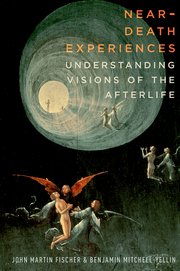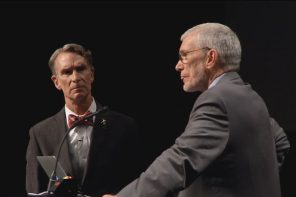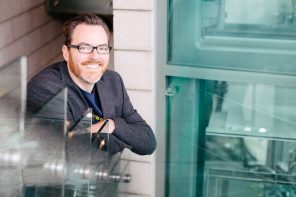Abortion debates. The right to die. Cloning.
The edges of life are also ethical fault lines, where social values clash at tectonic pressures. In a pluralistic society, it’s no surprise that these are also the sites of our most entrenched debates.
This is perhaps the best context for understanding the rise of the “heaven tourism,” a genre of first-hand accounts of near-death journeys to a supernatural realm. Best-selling books including Proof of Heaven, The Boy Who Came Back From Heaven, and Heaven Is For Real share two elements, which are both captured in this trailer for the 2014 film adaptation of Heaven Is For Real :
First, these accounts of near-death experiences emphasize how close the person was to biological death. It was a “miracle” that young Colton even survived, just as it was seemingly impossible for Proof of Heaven author Dr. Eben Alexander to survive having his brain riddled by E. coli. (Impossible indeed: Alexander’s account has been widely debunked, including his description of his brain infection and coma.)
During their near-death experiences, heaven tourists also make special observations that can’t be explained. “Everything he talks about is impossible!” cries a rattled Greg Kinnear, presumably before giving up his rigid scientific worldview. The only natural explanation, it always seems, is that something supernatural has occurred.
Heavenly jaunts aren’t the only kind of near-death experience. Current academic literature indicates that only a small fraction of near-death events lead to supernatural experiences, and that such experiences are inevitably informed by the worldview of the person experiencing them.
(Christians, for example, don’t die and come back with stories of Muhammad.)
Near-death experiences do, however, seem to be a unique cultural pressure point. Death, conceived by so many as a portal to another realm, is understood to be a one-way exit. If one of us were to traverse death, and prove it, we could smuggle proof of the supernatural into our secular world. This is the rhetoric underlying heaven tourism as a genre.
Near-Death Experiences: Understanding Visions of the Afterlife
John Martin Fischer and Benjamin Mitchell-Yellin
Oxford University Press
June 2016
In their new book, Near-Death Experiences: Understanding Visions of the Afterlife, John Martin Fischer and Benjamin Mitchell-Yellin criticize this very rhetoric. Fischer and Mitchell-Yellin both worked on the Immortality Project, a multi-million dollar collaborative research project. Their resulting book advocates for a scientific approach to near-death experiences, which they argue can still be meaningful when described in physical, non-religious terms.
I spoke recently with Mitchell-Yellin about the physiology of death, out-of-body denture spotting, and why LSD trips are helpful for thinking about near-death experiences.
_______________
Andrew Aghapour: In your book you take on “supernaturalist” accounts of near-death experiences, which emphasize elements of NDE’s that should be physically impossible. Could you tell me more about supernaturalism as a genre?
Benjamin Mitchell-Yellin: Supernaturalism is a position that rests on two basic claims. The first claim is that the mind is separate from the body. The second claim is that there’s a supernatural realm, or that the physical world that we experience through our senses is not all that there is.
The vast majority of the work that I’ve seen on near-death experience argues for supernaturalism and against physical explanations.
For example, [a scientist might posit that] people have near-death experiences when they are in cardiac arrest because their brains lack oxygen, or that maybe it’s because their brain is releasing certain chemicals, like DMT, which we know are released in certain near-death contexts.
The supernaturalist strategy is to look at each of these physical factors in isolation. They will say, “Well, not every case of near-death experience involves lack of oxygen, so it can’t explain all near-death experiences,” and reject the relevance of lack of oxygen in near-death experiences across the board. This same reasoning [is applied to] all the candidate physical explanations. This is a very particular demand for a good explanation, that it can explain all instances and all features of a phenomenon.
There are cross-cultural similarities to near-death experiences, like seeing a bright light or seeing ancestors who have already died. What about the argument that these must be observations of the same heavenly realm?
That’s another very common argument in favor of accepting supernaturalism. One thing that it ignores is that across all cultures and in different times human beings are built physiologically similar. Given that different cultures include people with very similar bodies, you might expect that human physical reactions to things would be very similar across different cultures and time periods. So again it’s just not clear why the cross-cultural, the cross-temporal similarities to these experiences would require us to give up the idea that near-death experiences might be explained in physical terms.
Also common to near-death experience narratives are tales of impossible observations, like the man who sees where his dentures were stashed after his death.
The famous case of the missing dentures. A patient comes [into the hospital] in cardiac arrest and they’re going to start CPR, and in order to do so they remove his dentures. Days later, [when the stabilized patient is] still in the hospital recovering, no one can find his dentures. Then a male nurse walks in the room and the patient says, “Ah, you know where my dentures are because you took them out and put them in that drawer!” Lo and behold that’s where the dentures are.
It turns out the patient had an out of body experience where he’d witnessed his own resuscitation from a perspective near the ceiling of the room. This is an experience that seems really hard to make sense of in physical terms. If he was unconscious, how could he have seen the nurse take out his dentures unless he actually was floating near the ceiling and watching?
I’m just not sure that [cases like this] provide such strong evidence for supernaturalism. There’s all sorts of factors that could possibly explain how this man came to have the memory of seeing his nurse take his dentures out. For example, he had been in the hospital multiple days, so maybe he had some familiarity with hospital procedures, with the fact that there are these drawers and that they take things from patient’s bodies and put them in the drawers for safekeeping during these procedures. Then, in conjunction with the phenomenon of false memories, maybe he could have really come to remember seeing this when it never actually happened.
Accurate or not, supernatural accounts of near-death experiences are a major industry. A genuine NDE (or a sketchy account of one) can get you a best-selling book or a movie deal. Why do you think there’s so much cultural interest in these eyewitness accounts of the other side?
There are two ways we can think about the human quest for understanding. One way is in terms of explanation. We want to know why something happened. We want the truth, and we want our explanations to make sense.
“Do you need to understand your experience as supernaturally created in order for it to be meaningful and transformative to you?”
We also create narratives and tell stories. This is another way of understanding that doesn’t require appeals to the truth in the same way that explanation does. This way of understanding [involves] emotional patterns. Supernatural explanations may appeal to this side of human nature. They certainly do so much better than the kind of dry, false-memory type of explanation that I was talking about earlier.
In the book you argue that LSD trips might be a helpful metaphor for thinking about this difference between explanation and the search for narrative meaning.
We’re borrowing from Oliver Sacks, who writes about someone who had an LSD trip that was deeply transformative and meaningful. What was striking to us is that the elements of the trip corresponded to the classic definition of near-death experiences. It included a life-review scene (life passed before him like a movie), out of body experience, warm feelings—the classic hallmarks of near-death experience.
The person having the LSD trip was quite happy explaining what happened in terms of chemical reactions in his brain due to a substance he ingested. What’s interesting is that you could have an experience where the subject of that experience does not feel the need to explain it in any sort of non-physical or supernatural terms, and yet it can still be deeply meaningful and transformative for him.
What could we learn from LSD trips about near-death experiences?
I think there’s a lot that we could learn. There’s been renewed interest in the research on psychedelics and the way they can transform our brains. In terms of hard science, we could probably learn quite a bit about our brains by looking at these special types of experiences.
Second, we can learn how to respond to this one reaction that John Martin Fischer and I have gotten to some of our work: “you’re being downers, guys!”
Looking at the LSD trip that we talk about in the book, it’s not clear that you need to appeal to the supernatural in order for this kind of experience to be significant in the way that people to want them to be. Do you need to understand your experience as supernaturally created in order for it to be meaningful and transformative to you? LSD trips are an example where that’s not the case, so it’s not clear that physical explanations of near-death experiences would ruin their transformative effects or make them less appealing to the people who are having them.
I suppose so, but if you walk into a room full of people who are tripping on LSD and read a textbook description of the chemical… you’d be a bit of a buzz-kill, right?
Oh, definitely. What’s interesting there is timing. In that scenario where you’re in a room with people who are tripping, it seems like it would certainly be a buzz-kill to remind everybody that it was just the chemicals taking the natural course. You’re detaching yourself from the immersion and the experience at that moment.
That’s very different than thinking the next day, or later on in your life, “Well, in the moment I wasn’t thinking about this, but now I can recall that that was chemically induced.” It’s not clear that after the fact explanations that are like that would really be such downers. It doesn’t change the fact that you had the experience or the characteristics of the experience. It would still be meaningful in the same way.
Also on The Cubit: Churches Can No Longer Hide the Truth: Daniel Dennett on the New Transparency






